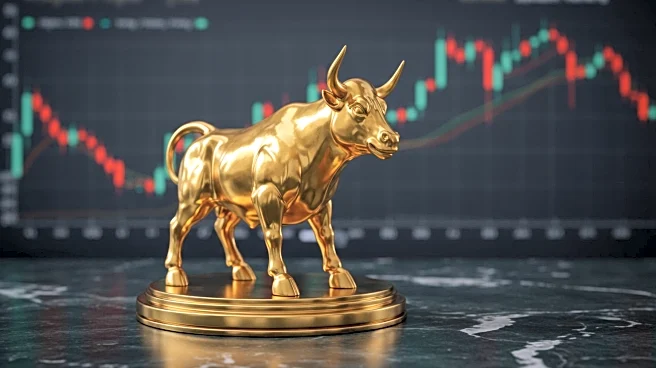What is the story about?
What's Happening?
Federal Reserve Chair Jerome Powell's recent comments have sparked a rally in U.S. stocks and a decline in Treasury yields, as he hinted at a possible interest rate cut in September. Speaking at the Jackson Hole symposium, Powell acknowledged the risks to the job market and inflation, suggesting a shift in monetary policy might be necessary. His remarks led to significant gains in major stock indices, with the S&P 500 and Nasdaq Composite rising by 1.5% and 1.7%, respectively. The Dow Jones Industrial Average also reached a record high. Powell's speech has increased market expectations for a rate cut, despite ongoing political pressure from President Trump.
Why It's Important?
Powell's indication of a potential rate cut has significant implications for financial markets and the broader economy. Lower interest rates could stimulate economic growth by making borrowing cheaper, benefiting both consumers and businesses. The stock market's positive response reflects investor optimism about the potential for economic recovery. However, the decision to cut rates must balance the risks of inflation and employment. The Federal Reserve's actions will be closely monitored by global markets, as they could influence international economic trends and investor confidence.
What's Next?
The Federal Reserve's upcoming meeting in September will be pivotal, as it may decide on the interest rate cut. Powell's comments suggest that the decision will depend on forthcoming economic data, particularly regarding employment and inflation. The potential rate cut could face political challenges, especially from President Trump, who has been advocating for lower rates. The Fed's ability to maintain its independence while addressing economic pressures will be crucial. Market reactions and economic indicators in the coming weeks will provide further insights into the likely direction of U.S. monetary policy.

















